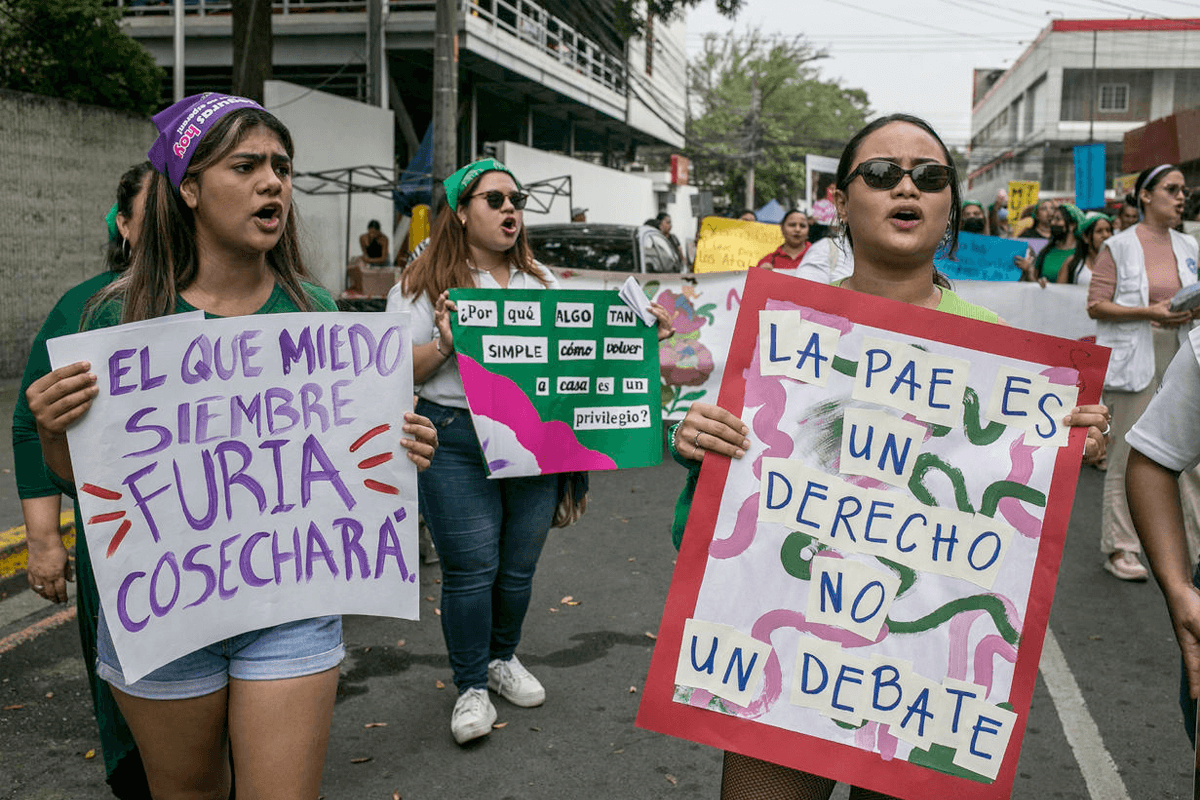
Inside a little wooden house among the pine and oak forests of western Honduras’ coffee-growing mountains, a woman opened a tiny package of pills, delivered to a nearby town. She didn’t know it, but the medication had more than likely entered the country hidden in an activist’s suitcase, from Mexico.
The woman, 27, was confident in her decision to have an abortion, but in the moment, she panicked. She knew she was breaking national law banning all abortions and could be prosecuted. Even more, she feared medical complications, or her religious family finding out. Days earlier, an anonymous guide had asked her for an ultrasound; she sent it via encrypted message. Now, in her one-room house, empty and quiet except for the pings of her cellphone with messages from the guide and her closest friend, she studied the instructions on how to take the pills – first the mifepristone, later the misoprostol.
She was ready. She swallowed the first pill….
In remote mountain villages, urban neighbourhoods, along the Caribbean coast – despite the national ban against abortions under all circumstances and amid suffocating social and religious opposition, women are terminating pregnancies across Honduras with the help of clandestine networks seeking to make the procedure as safe as possible.
Activists in the networks use code words, aliases, encrypted messages, burner phones. Most don’t know one another, or any specifics beyond their role in the chain that ultimately provides information and the abortion pills endorsed by the World Health Organization and used safely and legally around the globe….
In a country of 10 million people, sometimes there are surprises. A young lawyer discovered that her own mother was part of a network when she sought help to get an abortion. She first asked her mother’s friend. Her sister eventually encouraged her to approach her mother directly. When she did, her mother assured her there was a solution. Her mother already was in possession of the pills, as part of her role in the network….
Honduras has one of the highest rates of teenage pregnancy in Latin America, more than double the world average, according to the UN Population Fund. That’s why some activists have specialised in accompanying girls for abortions. The girls, some aged just 12, are usually with their mothers or grandmothers — who often need more comfort than the girls, the experienced guide said….
… One woman had been unable to pay for the pills at the time, and she wanted to make up for that. She knew it was the only way for the guides to keep working. But the secrecy of the networks prevailed. She discovered that there was no way to send a payment or find the person who had helped her. Her guide never answered the phone again.
SOURCE: CBS News, 20 May 2023 (excerpts) + PHOTO International Women’s Day March, Honduras, 2023, by Ginnette Riquelme/AP



